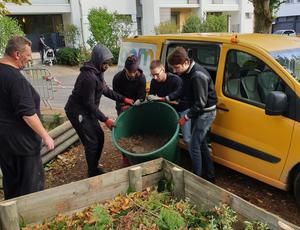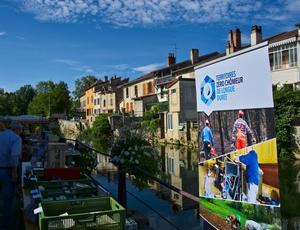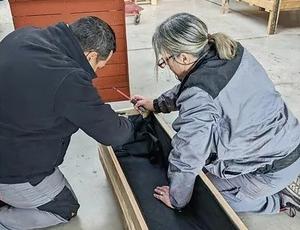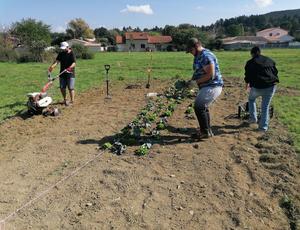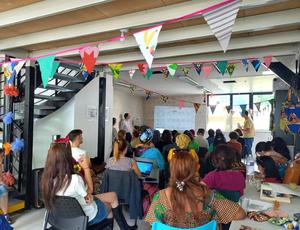
Social & Employment
- Location:
France
- Sponsors:
Philippe Lagrange, Patrick Labat
- Grants:
€150,000 (€100,000 + €50,000) to the Board of Directors meeting of 17 May 2021
€150,000 to the Board of Directors meeting of 14 November 2022
Project leader
The TZCLD (“Zero long-term unemployment districts”) programme is an innovative mechanism to put an end to long-term unemployment. Trials have been set up since January 2017 under the terms of a law adopted unanimously by the French Parliament in February 2016, and have now been conducted in a selection of ten districts with 5,000 to 10,000 inhabitants thanks to the mobilisation of several NGOs: ATD Quart-Monde, Emmaüs France, Secours Catholique, Pacte Civique, the Fédération des Acteurs de la Solidarité, etc. The objective is clear: to show that no one is unemployable.
Reallocating costs
The programme is based on the belief that the financial cost to society of unemployment can be channelled into creating jobs that meet local needs, thus combining economic development, social cohesion and the elimination of long-term unemployment in the district concerned. In practice, jobs are created through state-aided employment-oriented businesses (EBEs), which recruit people in long‑term unemployment on a volunteer basis, offering permanent contracts at the minimum national wage and with a choice of working hours. What do they do? They carry out work that is useful to the local community but has been abandoned by the traditional sector due to not being considered as sufficiently profitable.
The TZCLD zero long-term unemployment districts projects thus supplement, with proven success, the existing territorial dynamics of a return to employment, in particular those developed by the SIAE (structures for integration through economic activity).
Key figures
60 approved territories (January 2024)
71 Entreprises à but d'emploi (EBE) created since the start of the experiment
3,387 people hired by EBEs since 2017
Since 14 December 2020, a law has secured the status of the first 10 districts involved and has extended the trials to at least a further 50 districts. Public budgets cover some 75% of the cost of a long-term job in an employment-oriented business.
The participants in the TZCLD programme
As soon as the first law came into effect in 2016, it was clear that an organisational structure was required to operate the system. The TZCLD association was therefore created to carry out the following four missions:
- To assist the districts wishing to join the programme;
- To provide support to the participating districts;
- To learn the lessons from the experiments undertaken and request external scientific assessments;
- To publicise the programme so as to obtain the long-term confirmation of the right to employment and to exercise a role of citizen watchdog.
It helps candidate districts to apply to the Territorial Experimentation Fund Against Long-term Unemployment (ETCLD), which provides the list of districts selected to participate in the experiment. The ETCLD fund is the agency that finances part of the remuneration of the people recruited to work in EBEs.
To support the programme’s ambitions, the Veolia Foundation provides financial support to the TZCLD association as well as to local initiatives, in specifically identified districts, in conjunction with local Veolia teams.
TZCLD territories supported by the Veolia Foundation
In 2022, the Veolia Foundation is renewing its support to TZCLD to ensure the development of the initiative. It is not the only one to have spotted this scheme. The innovative nature of the program has been noticed on an international scale: a laboratory for the "Job guarantee" principle, TZCLD is arousing growing interest. The association is also part of a working group initiated by the European Commission, which enables an exchange of good practices to guide political programmes. When innovation is noticed at the highest level, it can be projected into a desirable future.


